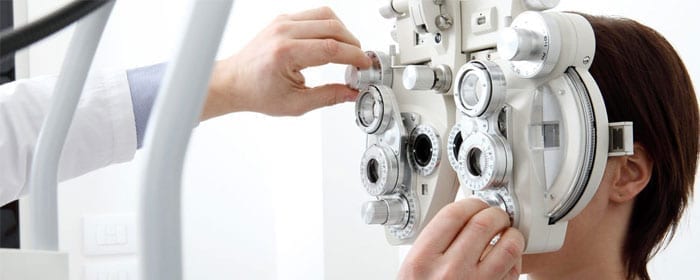Diabetes patients know that maintaining regular visits with their primary care physician is essential to effectively managing their condition and its symptoms. Yet, it’s also critical to make sure other aspects of their health are well-maintained, too. In order to take an all-encompassing approach to health management, individuals with diabetes should also follow a regular schedule of eye and dental exams as recommended by their optometrist and dental care team. Discover why these two facets of health are so important for diabetes patients in particular here.
Eye Exams for People with Diabetes
If you’ve never had an eyesight issues, you may wonder why your primary doctor would recommend having an eye exam following a diabetes diagnosis. The reason for this is because certain conditions in the eye, including glaucoma and cataracts, are more common in diabetes patients. While they are commonly treatable when caught in their early stages, when left unaddressed, they could lead to vision loss.
Additionally, individuals with diabetes may be at risk of developing a condition called diabetic retinopathy. When too much sugar is found in the blood supply, it can impact the blood flow to the retina. In its earliest stages, symptoms may be undetectable, but over time the condition may cause blurred vision, floaters, difficulty focusing, or other vision changes. Luckily, this and other conditions can be detected in tests performed during diabetic eye exams.
Any time you notice changes in your vision, it’s important to discuss your symptoms with an eye care professional. As with many other health conditions, treatments are often most effective when administered in the earliest phases of eye-related issues. It is advisable for individuals with diabetes to receive eye exams performed by specialists at least once every one to two years, depending on their doctor’s recommendation.
Dental Exams for Diabetes Patients
According to research, there has been a recent decline in dental visits in adult patients with diabetes. This is a problem because dental wellness and diabetes are interdependent on one another: for instance, people with diabetes have higher odds of developing periodontal disease, and periodontal disease can worsen diabetes by impacting blood glucose levels.
As with eye exams, dental checkups are useful for early detection of potentially serious issues. Periodontal disease, also called periodontitis, is an aggressive form of untreated gum disease which causes pockets to form between the teeth and the soft tissue of the mouth. Within these pockets, infections can develop, which may eventually lead to bone loss. Thus, not only can periodontitis worsen diabetes symptoms, but it can eventually lead to widespread health issues.
The good news is that the dental conditions to which diabetes patients are more prone, including all forms of gum disease, are easily detected by dental care professionals. Therefore, while a preventive dental care regimen is important for all individuals, it is especially critical for anyone with diabetes.
Diabetes is a condition with symptoms that are not isolated to one part of the body, so it’s important to take as broad an approach to wellness as possible. By going for regular eye and dental checkups in addition to receiving treatment from your diabetic care team, you can manage your symptoms more proactively and enjoy a better quality of life.


 St. Petersburg, Florida
St. Petersburg, Florida
